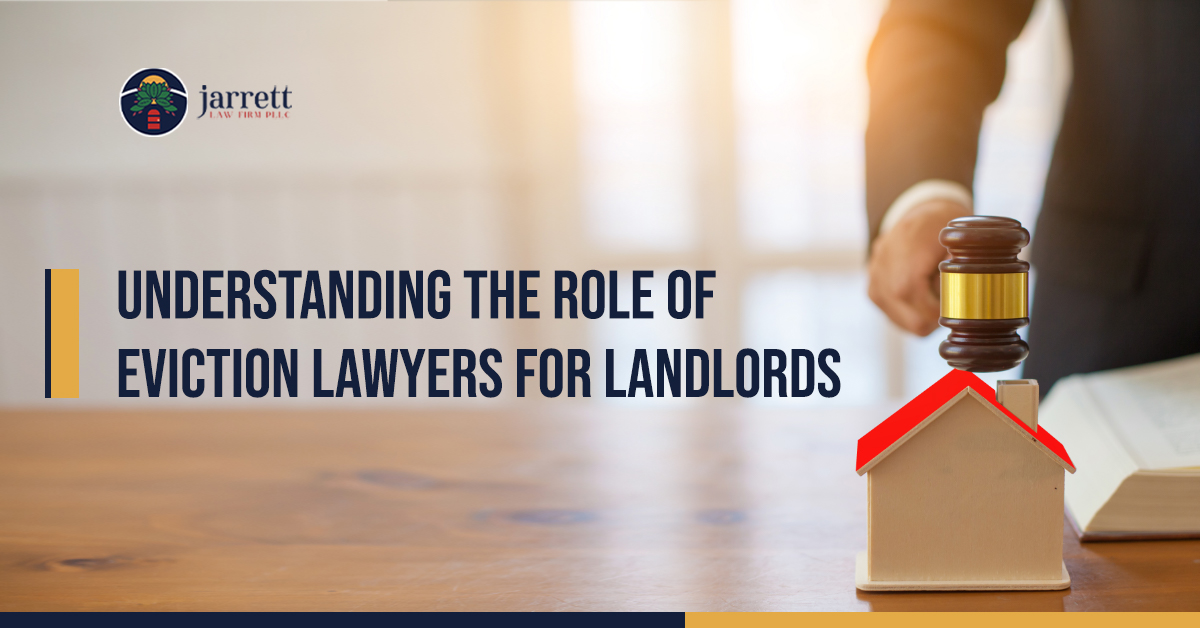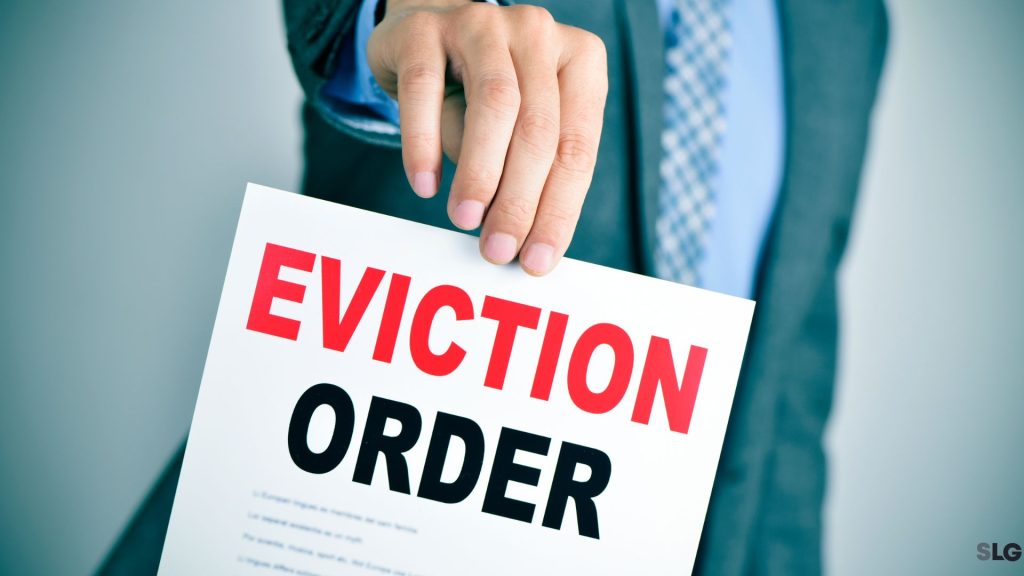Comprehending the Duty of an Expulsion Attorney in Residential Property Monitoring Issues
The role of an expulsion attorney is often taken too lightly in the world of property monitoring, yet their experience can be critical in resolving occupant conflicts effectively. These lawful professionals navigate the complex landscape of eviction regulations, making certain that property managers remain certified with policies while guarding their interests.
Value of Eviction Lawyers

Additionally, expulsion lawyers supply essential support in preparing and filing the necessary lawful records, such as notices to abandon and court filings. Their proficiency can significantly enhance the eviction procedure, enabling property supervisors to concentrate on various other functional elements of their duties. They can stand for residential or commercial property managers in court, providing a solid case to promote the home proprietor's passions and civil liberties.
In situations of disagreements, having legal depiction can be pivotal in working out settlements or moderating disputes, possibly saving time and resources. Eventually, engaging an eviction lawyer not only help in the reliable monitoring of home however likewise works as a safeguard against potential lawful consequences, making sure that home monitoring methods remain both effective and authorized.
Key Obligations of Eviction Attorney
Eviction lawyers play an essential function in the residential property administration procedure by supervising various legal responsibilities connected with occupant evictions. Among their primary duties is to give legal advice to building supervisors and landlords, ensuring conformity with state and local regulations concerning occupant civil liberties and evictions. This consists of examining lease agreements to determine prospective violations and premises for eviction.
Furthermore, expulsion lawyers prepare and submit the needed lawful files to launch expulsion proceedings. They draft expulsion notices, motions, and problems, ensuring that all paperwork satisfies lawful standards. They stand for property managers in court during eviction hearings, presenting evidence and arguments to support their situation.
Expulsion legal representatives additionally play an essential role in bargaining negotiations in between property managers and lessees, usually seeking to solve conflicts amicably before they intensify to court. Past evictions, they might help in issues associated with lessee problems, overdue lease, or lease infractions. Overall, eviction attorneys supply necessary lawful assistance that assists property managers navigate the complexities of tenant evictions while minimizing potential lawful dangers and guaranteeing a much more efficient residential property monitoring procedure.
Legal Structure Governing Expulsions
The legal structure governing expulsions is a complex interplay of federal, state, and local laws made to secure both lessees and proprietors. At the government degree, the Fair Real estate Act prohibits prejudiced techniques in real estate, affecting eviction proceedings and making sure equal therapy for all renters. In addition, the Servicemembers Civil Alleviation Act supplies defenses for armed forces employees versus expulsion while on energetic duty.
State legislations better specify the expulsion process, including the reasons for expulsion, notification demands, and the timeline for process. Most a knockout post states need landlords to give written notification specifying the factor for eviction, such as non-payment of lease or lease infractions. This notification period differs considerably, with some states permitting as little as three days and others up to 30 days.
Neighborhood statutes may introduce additional laws, such as rent control actions or details lessee securities, which property owners need to follow. These legislations collectively develop an organized process that intends to stabilize the civil liberties of homeowner with occupant protections. Comprehending this legal structure is necessary for expulsion legal representatives, as it notifies their methods and makes certain conformity with the myriad of policies regulating eviction instances.
Usual Obstacles in Expulsion Situations
Navigating the intricacies of eviction legislation offers a number of difficulties for proprietors and their attorneys. One substantial difficulty is making certain compliance with state and neighborhood policies, which can differ extensively and change regularly. Failure to stick to these legislations can result in hold-ups or terminations of expulsion process, forcing landlords to restart the procedure.
An additional obstacle is the necessity of providing ample documentation to support the expulsion. Landlords need to preserve precise records of lease contracts, repayment backgrounds, and any type of correspondence with lessees. Poor or badly organized paperwork can undermine a proprietor's case, making it important to have a organized and extensive method to record-keeping.

Eventually, these obstacles highlight the value of comprehending the click to find out more legal landscape and preparing effectively to navigate the eviction procedure properly, making the duty of an eviction lawyer indispensable in these circumstances. - eviction attorney miami
Advantages of Working With an Eviction Lawyer
Working with an eviction lawyer can dramatically streamline the difficult and often complicated process of eliminating a lessee from a rental residential or commercial property. One of the main benefits is their competence in navigating the lawful landscape bordering expulsions. They are skilled in local laws and regulations, making sure that all procedures are followed correctly to prevent expensive delays or potential lawful risks.
Furthermore, eviction legal representatives can handle all required paperwork, from submitting the first expulsion notice to representing landlords in court. Their experience permits them to prepare a solid instance, enhancing the chance of a beneficial end result. This legal support not just conserves time however additionally reduces the psychological concern commonly related to expulsion process.
Furthermore, an expulsion lawyer can supply useful suggestions on tenant-related concerns, assisting proprietors understand their legal rights and responsibilities (eviction attorney miami). They can likewise moderate disagreements, potentially bring about a resolution without the demand for court intervention
Verdict
In summary, eviction legal representatives play a vital duty in residential property administration by making sure compliance with lawful requirements and safeguarding proprietors' civil liberties. Their proficiency in browsing the intricacies of eviction regulations helps with a much more efficient resolution of occupant disputes. By preparing essential paperwork, representing building proprietors in court, and working out negotiations, eviction legal representatives not only enhance the eviction procedure however also alleviate the risks linked with possible legal challenges. Their involvement ultimately improves the total efficiency of property monitoring strategies.
A knowledgeable expulsion lawyer helps home supervisors recognize local and state regulations that control lessee civil liberties and expulsion treatments, ensuring compliance and minimizing the danger of expensive lawful mistakes.
Expulsion legal representatives play an important function in the residential property administration procedure by managing different legal duties connected with occupant evictions. In general, eviction attorneys give essential lawful assistance that assists home managers navigate the complexities of lessee expulsions while lessening prospective legal threats and making certain a more reliable building monitoring process.

By preparing essential documents, representing building owners in court, and bargaining settlements, eviction attorneys not just simplify the expulsion process however additionally mitigate the risks connected with prospective legal obstacles.